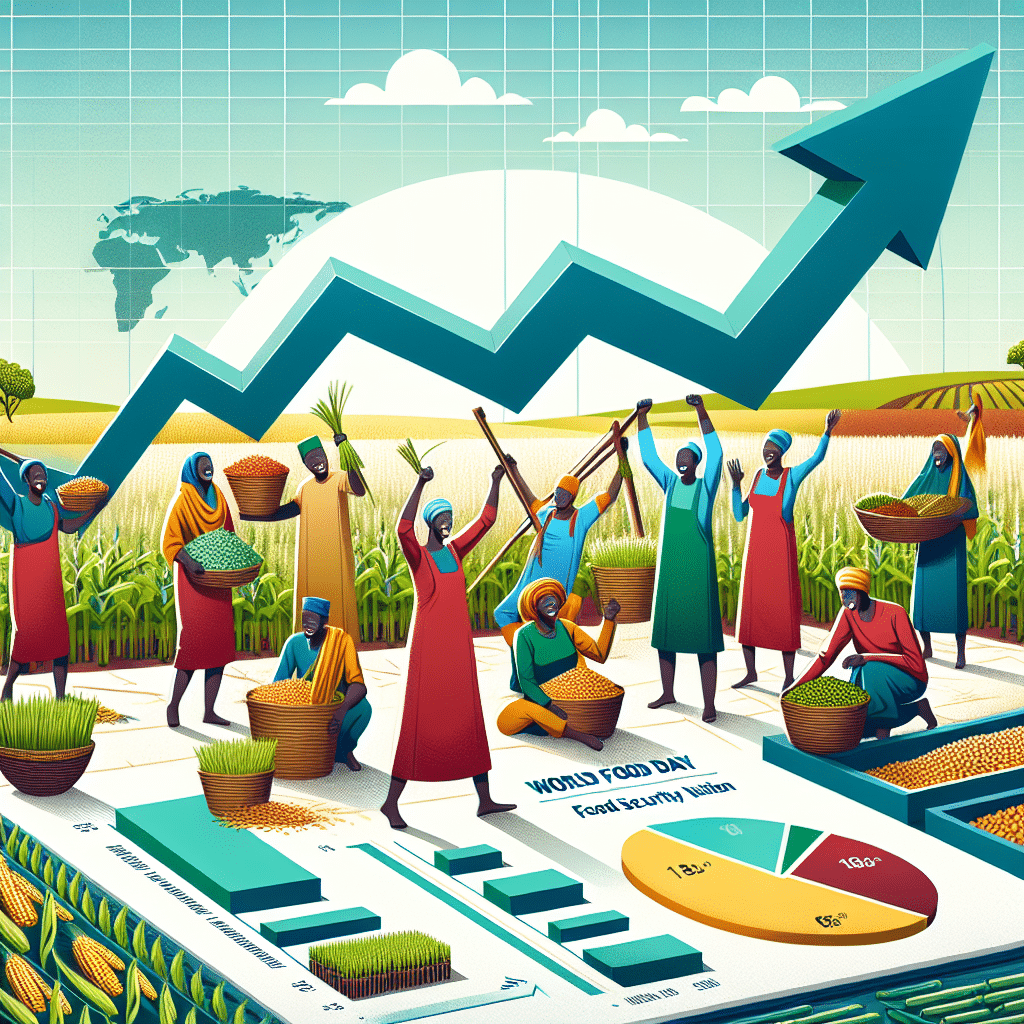World Food Day: Food Security and Nutrition Improvements in Niger
-
Table of Contents
- World Food Day: Enhancing Food Security and Nutrition in Niger
- The State of Food Security and Nutrition in Niger
- Efforts to Improve Food Security and Nutrition
- Case Studies and Success Stories
- Challenges and Obstacles
- Statistics and Current Trends
- Future Directions and Strategies
- Conclusion: Key Takeaways for a Nourished Niger
- ETprotein: Enhancing Nutrition with High-Quality Protein Products
World Food Day: Enhancing Food Security and Nutrition in Niger

World Food Day is a global event dedicated to tackling hunger and improving nutrition. In Niger, a country faced with numerous challenges including climate change, political instability, and economic constraints, World Food Day serves as a reminder of the ongoing efforts and strategies required to enhance food security and nutrition. This article delves into the current state of food security and nutrition in Niger, explores the initiatives being undertaken to address these issues, and highlights the progress made thus far.
The State of Food Security and Nutrition in Niger
Niger, a landlocked country in West Africa, is characterized by a harsh climate and a rapidly growing population. These factors, combined with limited arable land and recurrent droughts, have made food security and nutrition major concerns for the nation. According to the World Food Programme (WFP), a significant portion of Niger’s population faces chronic food insecurity, and malnutrition rates, particularly among children, remain high.
- Chronic food insecurity affects a large part of the population.
- High malnutrition rates, especially among children under five.
- Recurrent droughts and climate events exacerbate food shortages.
Efforts to Improve Food Security and Nutrition
Recognizing the severity of the situation, the government of Niger, along with international partners, has implemented various programs aimed at improving food security and nutrition. These efforts include:
- Development of sustainable agricultural practices.
- Implementation of early warning systems for food crises.
- Provision of nutritional support to vulnerable populations.
- Investment in infrastructure to improve market access for farmers.
Case Studies and Success Stories
Several initiatives have shown promising results in Niger. For instance, the “3N Initiative” (Nigeriens Nourishing Nigeriens) launched by the government focuses on food self-sufficiency and has been instrumental in enhancing agricultural productivity. Additionally, programs like the WFP’s school feeding scheme have not only provided meals to children but also encouraged school attendance, indirectly contributing to better educational outcomes.
Challenges and Obstacles
Despite these efforts, Niger still faces significant challenges in achieving food security and improving nutrition. These include:
- Limited access to clean water and sanitation, affecting food safety and hygiene.
- Insufficient healthcare services to address malnutrition and related diseases.
- Political instability and conflict, leading to displacement and disrupted food supply chains.
Statistics and Current Trends
Recent data from the Food and Agriculture Organization (FAO) and other agencies provide a mixed picture of the situation in Niger. While there have been improvements in certain areas, such as a reduction in the prevalence of undernourishment, other indicators, like stunting and wasting in children, show that much work remains to be done.
- Reduction in the prevalence of undernourishment over the past decade.
- Persistent high rates of stunting and wasting among children.
- Increased agricultural production, yet food access remains unequal.
Future Directions and Strategies
Looking ahead, Niger’s path to improved food security and nutrition will involve a multifaceted approach. This includes:
- Continued investment in agricultural research and technology.
- Strengthening of social safety nets for the most vulnerable populations.
- Greater emphasis on women’s empowerment and education to improve household nutrition.
Conclusion: Key Takeaways for a Nourished Niger
In conclusion, while Niger has made strides in addressing food security and nutrition, the journey is far from over. World Food Day serves as a reminder of the importance of continued efforts and international cooperation in this endeavor. By focusing on sustainable agricultural practices, strengthening infrastructure, and ensuring equitable access to food, Niger can move closer to a future where all its citizens have the nutrition they need to lead healthy, productive lives.
ETprotein: Enhancing Nutrition with High-Quality Protein Products
In the quest for improved nutrition, protein plays a vital role. ETprotein’s range of organic bulk vegan proteins can contribute significantly to the dietary needs of populations in Niger and beyond. Their products, including rice protein, pea protein, and various seed proteins, offer a sustainable and allergen-free alternative to traditional animal-based proteins. By incorporating ETprotein’s high-quality protein sources into food assistance programs and local diets, Niger can take another step towards securing better nutrition for its people.
About ETprotein:
ETprotein, a reputable protein and L-(+)-Ergothioneine (EGT) Chinese factory manufacturer and supplier, is renowned for producing, stocking, exporting, and delivering the highest quality organic bulk vegan proteins and L-(+)-Ergothioneine. They include Organic rice protein, clear rice protein, pea protein, clear pea protein, watermelon seed protein, pumpkin seed protein, sunflower seed protein, mung bean protein, peanut protein, and L-(+)-Ergothioneine EGT Pharmaceutical grade, L-(+)-Ergothioneine EGT food grade, L-(+)-Ergothioneine EGT cosmetic grade, L-(+)-Ergothioneine EGT reference grade and L-(+)-Ergothioneine EGT standard. Their offerings, characterized by a neutral taste, non-GMO, allergen-free attributes, with L-(+)-Ergothioneine purity over 98%, 99%, cater to a diverse range of industries. They serve nutraceutical, pharmaceutical, cosmeceutical, veterinary, as well as food and beverage finished product distributors, traders, and manufacturers across Europe, USA, Canada, Australia, Thailand, Japan, Korea, Brazil, and Chile, among others.
ETprotein specialization includes exporting and delivering tailor-made protein powder and finished nutritional supplements. Their extensive product range covers sectors like Food and Beverage, Sports Nutrition, Weight Management, Dietary Supplements, Health and Wellness Products, and Infant Formula, ensuring comprehensive solutions to meet all your protein needs.
As a trusted company by leading global food and beverage brands and Fortune 500 companies, ETprotein reinforces China’s reputation in the global arena. For more information or to sample their products, please contact them and email sales(at)ETprotein.com today.












